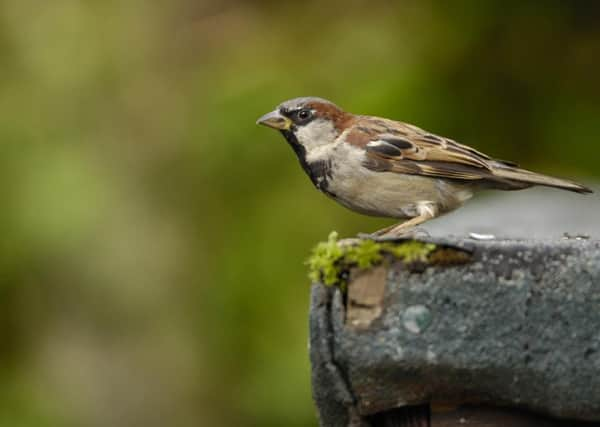House sparrows top pecking order
This article contains affiliate links. We may earn a small commission on items purchased through this article, but that does not affect our editorial judgement.


They were seen in around 76 per cent of gardens and green spaces, but this boisterous little bird is now amber-listed, making it of medium conservation concern in Ireland and red-listed in the UK.
Research is ongoing to try and determine the cause of these declines, but it’s thought it could be linked to changes in agricultural practices, particularly the loss of winter food.
Advertisement
Hide AdAdvertisement
Hide AdStarlings came a close second, but while they are still one of the commonest of garden birds, their numbers have also declined significantly in recent years. The cause of this decline remains uncertain but it’s thought a reduction in their preferred food sources, like invertebrates such as earthworms and leather jackets, may play a part.
Chaffinches came in third in the local poll. With their lovely colours and varied calls, it’s no wonder a group of these birds is often known as a ‘charm’.
At the other end of the scale, some of the more unusual species reported to RSPB NI included redwing – a winter migrant rarely seen in gardens except in very cold weather.
Running parallel to Big Garden Birdwatch is Big Schools’ Birdwatch, which this year saw 11 schools in Londonderry take part.
Advertisement
Hide AdAdvertisement
Hide AdAmy Colvin, from RSPB Northern Ireland, said: “We’re so delighted to see so many people, particularly children, take part in this year’s Birdwatch.
“It’s always really interesting to see which species are faring well and which may need a bit more of a helping hand. It’s clear that our gardens, local green spaces and playgrounds are vital places for birds to feed and breed.”
She said taking small steps to give nature a home, like putting up a feeder or nest box, can make all the difference. For tips and advice visit www.rspb.org.uk/homes.